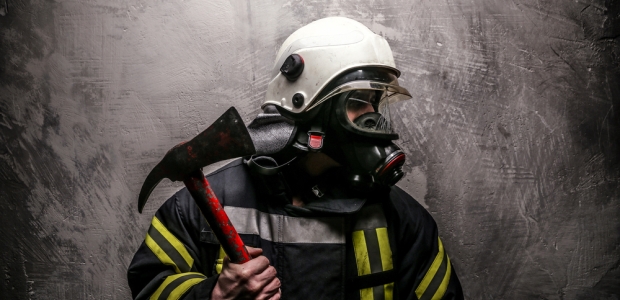
NFPA Bulletin Highlights Risks of Protective Hoods
"Given the increase in occupational cancer incidents in the fire service, we feel it is best to err on the side of caution as we await additional scientific research on PPE and learn more about the absorption of carcinogens near the forehead, jaw, neck, and throat," said Ed Conlin, the NFPA Public Fire Protection division's manager.
A new National Fire Protection Association safety bulletin highlights the dangers firefighters face because of the protective hoods they wear.
"It is well-documented that firefighter Personal Protective Equipment is exposed to a wide range of toxins, pathogens and other hazardous substances," NFPA noted in its announcement of the bulletin. "According to a study by the Centers for Disease Control and the National Institute of Occupational Safety and Health, firefighters have a greater number of cancer diagnoses and cancer related deaths. Firefighter protective hoods are the most penetrable piece of equipment; they do not stop soot and chemicals from depositing on a firefighter’s neck and head – areas that are extremely vulnerable to dermal exposure."
"NFPA has had the back of firefighters for more than 120 years," said Ed Conlin, the NFPA Public Fire Protection division's manager. "Given the increase in occupational cancer incidents in the fire service, we feel it is best to err on the side of caution as we await additional scientific research on PPE and learn more about the absorption of carcinogens near the forehead, jaw, neck, and throat."
The bulletin recommends that fire departments establish an overall health and safety program and practices for care and maintenance in accordance with NFPA 1851, Standard on Selection, Care, and Maintenance of Protective Ensembles for Structural Fire Fighting and Proximity Fire Fighting. The practices are:
- Wash protective hoods after every fire or emergency service use.
- Inspect them for damage and continued serviceability after every fire or emergency service use.
- Don't allow protective hoods to be taken home, to a laundromat, or to a dry cleaner for washing.
For additional information, visit NFPA's PPE cleaning page.